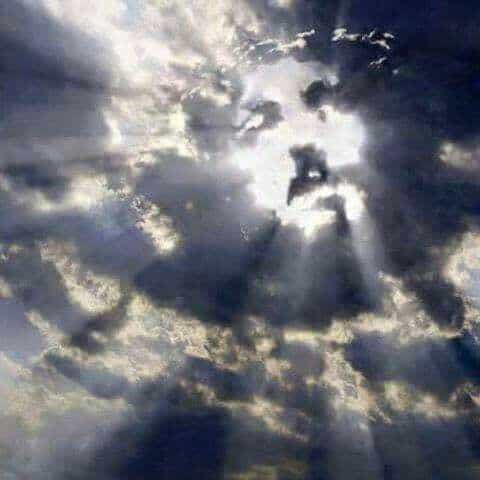
The Eschaton is one thing and eschatology* is quite another! The Eschaton is Jesus Christ – the ultimate, fullest and perfect manifestation of God in and as history – while eschatology refers to the ways in which the Jesus-Eschaton is interpreted, experienced and embodied in any given space and time. Orthodoxy in turn is one of these ways or, to be more precise, one specific set of these ways, which have been conditioned and formed by relatively common historical circumstances. The latter is what we more or less call geopolitics in modern jargon. So, what is implied through the above successive ‘definitions’ is the sheer fact that Orthodoxy, geopolitics and eschatology have always been intrinsically intertwined; in other words, they go together!
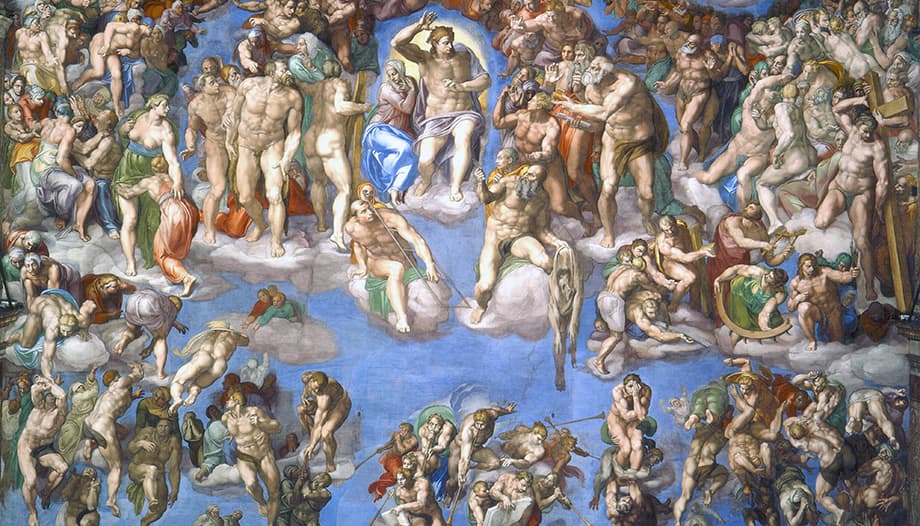
Nevertheless, this connection is one of tension – and, for that matter, it should remain as such. In particular, geopolitics pertains to the given reality of world politics as played out by major regional agents, whereas eschatology is about the desired paradox of how to be in this world by being beyond it. Orthodoxy, in any given space and time, is supposed to mediate this tension – not to eliminate it, but to make it functional. Thus, one could say that from a certain perspective Orthodoxy could be defined as the functionality of eschatology in the midst and in the face of geopolitics – but as you can imagine, the whole point in such a definition lies in the meaning of ‘functionality’, and as we all know very well meaning is never uncontested.
The Geopolitics of Empire and the Emergence of Orthodoxy
Orthodoxy as an eschatological mode started being formulated once the Roman Empire decisively opted for the Christian lifeworld as its fundamental means for socio-political cohesion. Consequently, the overall character of Orthodoxy emerged as a religious response to the conditions, the needs and the limitations that came along with the Roman Empire. But at the same time in a way or, better, in ways that intended to secure the functionality of eschatology, namely, the ultimate priority of the more-than-history Kingdom of God over against both the historical immanence of the Church and the hierophanic transcendence of the State.
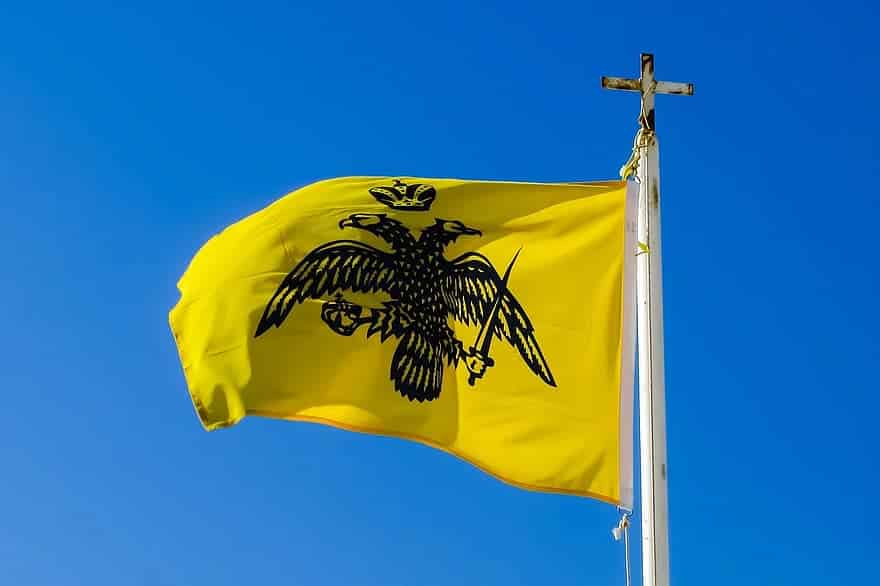
The so-called Pentarchy – the five ancient Patriarchates (Rome, Constantinople, Alexandria, Antioch, Jerusalem) – was an administrative ecclesiastical system that at once secured the balance between regional power relations within the Roman Empire, on the one hand, and allowed the Church to put forward a unified – but by no means homogenous – version of Christianity, on the other. This many-as-one version was consolidated as Orthodox, that is, the right version, which means single but comprehensive enough to proclaim the eschatological transformation and transcendence of history to a quite diverse audience. Needless to say, of course, tensions and clashes would appear time and again only to be negotiated and mitigated; and it was thanks to these tensions and clashes that Orthodoxy was proved to be a dynamic, ongoing and open process, and not a static, finished and closed reality.
One should always keep in mind that the Orthodoxy of the Empire was not always identical to what has come to be accepted throughout the ages as Orthodoxy. For instance, the Empire had its Arian, Monophysite, Monothelite, Iconoclastic and Anti-Hesyhast phases, which means that from the perspective of faith what was really at stake in the geopolitical manoeuvring of the Empire was always the yearning of eschatology; or, to put it otherwise, the viability of the Empire and the viability of the Christian calling did not always go hand in hand. Furthermore, Pentarchy was substantially undermined in reality, since the Muslim conquests of Alexandria, Antioch and Jerusalem entailed a de facto subordination – due to the lack of resources – of their Patriarchal Sees to the See of Constantinople (emphatically and consistently called thereafter ‘Ecumenical’).
The Geopolitics of the State-Nation and the Challenge of Orthodoxy
The above ecclesiastical modus vivendi would work for an entire millennium, but equally so it would pose challenges to the viability of eschatology as the genuine way of Christian being-in-history. The latter will be bolstered, however, throughout the Ottoman period – a variation of the Empire paradigm – due to the inter-religious confrontation between the new non-Christian authority and the old Christian subjects, providing the latter with a refreshed sense of eschatological witnessing – reminiscent of the Roman persecutions of Early Christianity. On the other hand, the Ecumenical Patriarch would retain his status and prerogatives over the entire Christian population within the Ottoman geopolitical domain, but this of course did not apply to Russia – a cardinal geopolitical agent in its own right – where the Byzantine ecclesiastical model was perpetuated in a rather artificial manner, leading thus to an extremely problematic caesaropapism**.
Nevertheless, what seems to have facilitated the unity of global Orthodoxy in a prolonged period of nearly four centuries (from the mid 1400s to the mid 1800s) was the common rejection of Western versions of Christianity on the part of local Orthodox Churches. But resisting the West in religious terms was not an adequate basis for Orthodox unity, as soon as the West had penetrated the Orthodox geopolitical sphere in cultural and civilisational terms. This penetration will have a severe socio-political impact on the Orthodox people, since the latter will start shaping their ethnic consciousness according to the framework of the Nation-State, a development that will result in a process of fragmentation. The Orthodox world shall enter modernity by getting out of the cocoon, so to speak, of the Empire, but this will happen without any relevant socio-political preparation.
The Orthodox Church will synodically condemn (1872) the new hierophanic challenge of the Nation-State – introduced from the West and known in the East as ethnophyletism – showing thus that traditional Orthodoxy posed most definitely a challenge to the new politics of modernity. Unfortunately, however, an adequate theology of ethnophyletism will not ensue from synodical condemnation, and in practice socio-political fragmentation and clash will become the permanent predicament of what used to be a more or less unified traditional Orthodox world. Modernity replaced the inclusivity of Orthodox faith under the Empire with the exclusivity of Orthodox identity under the Nation-State, thus accelerating, instead of slowing down, antagonism between Orthodox peoples – an antagonism that was now dictated by preconceptions of who was more and who was less Westernised.
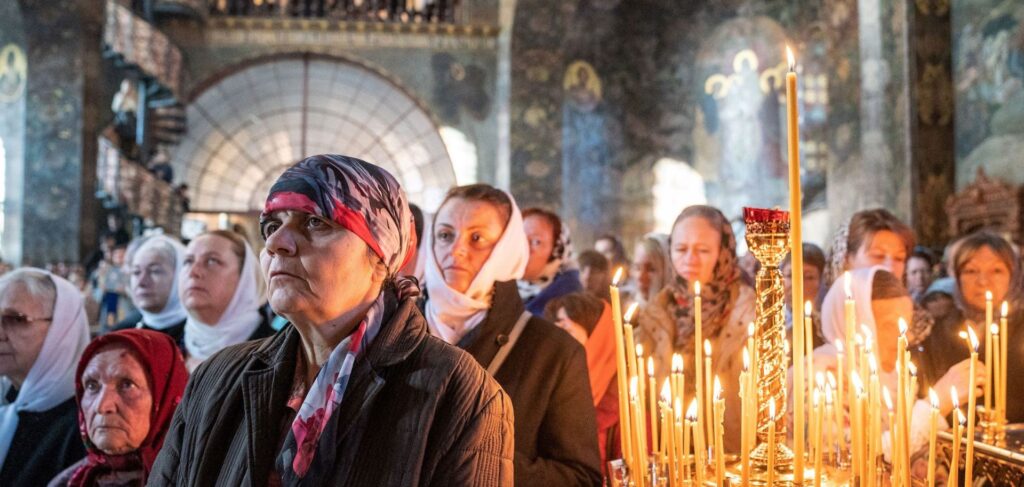
The Geopolitics of Globalisation and the Crisis of Orthodoxy
After the geopolitics of the Empire and the Nation-State, Orthodoxy has been confronted by the geopolitics of globalisation. Eventually, the Orthodox Church had to come to terms with political correctness, shifting from inclusivity to exclusivity to homogenisation. The globalisation of the world, amongst many other things, entailed that ‘the West and the rest’ was not valid anymore, since the rest had already become the West. Whereas the Empire gave more space to eschatology than the
Nation-State, globalisation has almost finished it off by espousing its fulfilment…
Relativism may be the epiphenomenon of postmodern globalisation, but its underpinning is definitely a singular world order. Within the latter, the pro-Western and anti-Western currents of the Orthodox world simply enrich the dialectics that are necessary for the political economy of the global cosmosystem.
The problem for global Orthodoxy nowadays is not so much the divide between its pro-Western and anti-Western proponents, for the Orthodox world is already profoundly Westernised. However, this is where the real problem arises: a Westernised Orthodoxy is – to put it as straightforwardly as possible – a secularised and, for that matter, very religionised Orthodoxy. Contemporary geopolitics has been draining eschatology – that is, the true calling of Orthodoxy – of its prophetic, critical and revolutionary thrust, turning it into a docile religion of the status quo. One could argue that this, more or less, has always been the predicament of Orthodoxy in its entanglement with geopolitics. Absolutely!
But equally so there has always been an Orthodoxy within and beyond Orthodoxy that remains faithful to its Beloved Eschaton, embodying thus an eschatology that ‘never fails’ (1 Cor 13:8).
In the current deadly and most disheartening turmoil regarding the affairs of the Orthodox Church, the faithful should refrain from Empire nostalgia, nationalistic gratification and globalised contentment. In order to do so, the only means left is to live Orthodoxy beyond its religious limitations and determinations of the past; to witness Orthodoxy as the truth that makes the difference and the love that embraces all differences.
To recall and paraphrase Dietrich Bonhoeffer, the way forward for Orthodoxy – if not historically, then definitely eschatologically – is to rediscover its intended religion-less calling to see the Jesus-Eschaton as ‘everything and in everyone’ (Col. 3:11).
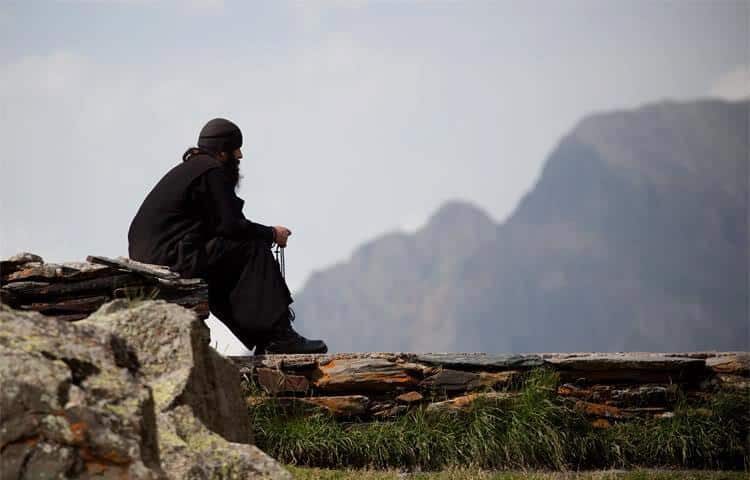
*Eschatology: conventionally, the part of theology concerned with death, judgement, and the final destiny of the soul and humankind. This is precisely the meaning that is not relevant to the present article.
**Caesaropapism: a political system in which the head of the state is also the head of the church and supreme judge in religious matters. The term is frequently associated with the late Roman, or Byzantine, Empire.
ABOUT | INSIGHTS INTO GLOBAL ORTHODOXY with Dr Vassilis Adrahtas
"Insights into Global Orthodoxy" is a weekly column that features opinion articles that on the one hand capture the pulse of global Orthodoxy from the perspective of local sensitivities, needs and/or limitations, and on the other hand delve into the local pragmatics and significance of Orthodoxy in light of global trends and prerogatives.
Dr Vassilis Adrahtas holds a PhD in Studies in Religion (USyd) and a PhD in the Sociology of Religion (Panteion). He has taught at several universities in Australia and overseas. Since 2015 he has been teaching ancient Greek Religion and Myth at the University of New South Wales and Islamic Studies at Western Sydney University. He has published ten books. He has extensive experience in the print media as editor-in-chief, and columnist, and for a while he worked as a radio producer. He lives in Sydney, Australia, his birthplace.

